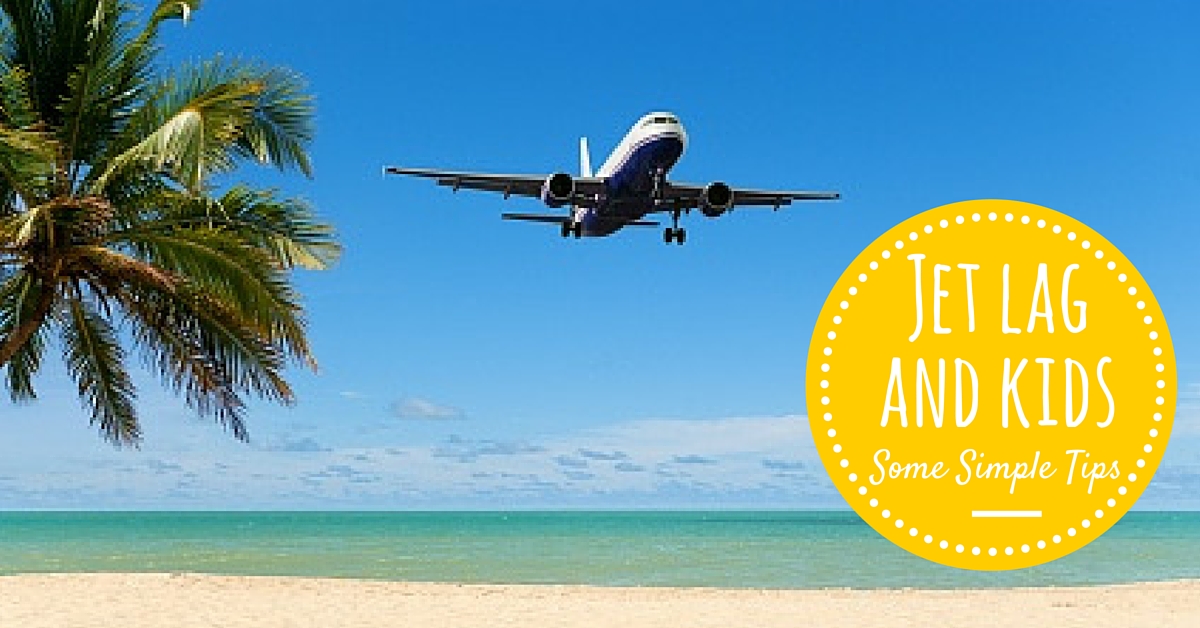
My children, who are currently aged 6 and 4, are fairly well-seasoned flyers for their ages with our eldest having visited 19 countries in her 6 years. They are also familiar with long-haul flights with big time-zone differences. We’re based in Dubai but have our families in Australia and Canada and to get to either of these locations we have to take a long flight and deal with the inevitable jet lag. So, over the past 6 years, I’ve learnt a thing or two about how to cope with jet lag and kids (and also long haul flights – though that’s an entirely separate post). The unavoidable reality is that everyone suffers from jet lag and, whether the time difference is as little as 3 hours or as great as 11, babies and children are no exception. For dealing with jet lag, we try to use strategies that aren’t too complicated, so based on our personal experience here are some simple tips:
Tip #1 – Try to have a good flight
Sometimes this is easier said than done with kids! During the flight we try to keep well hydrated, well fed and well rested. Good hydration, healthy food and rest give your body the best chance at coping with jet lag on arrival. I always take snacks on board and we try to purchase large bottles of water prior to boarding the plane, so that we have plenty of water and don’t constantly need to ask for it. Some airlines divvy out water in small cups, which doesn’t help if you are really thirsty. Getting off a flight and feeling well is half of the jet lag battle won!
Tip # 2 – Sunlight, sunlight and more sunlight
For us, lots of exposure to daylight in the first few days of our trip is the simplest and best method to help combat jet lag. I was given this tip many years ago and it really does work. The body clock is regulated by melatonin, which is produced only at night and is regulated by exposure to light and darkness. So sunlight helps the body re-adjust to the new time schedule. We try to spend our first day outdoors at any new destination and I find that exposure to lots of daylight definitely helps my kids adapt to a new time zone and get over the jet lag quickly.
Tip # 3 – Treat the day like a normal day
When you arrive at your destination try your best to treat it like a normal day. It sounds daunting and I never heeded this advice before having kids but this technique really works for us, especially when faced with big time-zone differences. We often co-ordinate our flights so that we arrive at our destinations in the morning. This way we can treat the first day of our trip as a normal day. We try to find a fun activity to do, we eat our meals at the times we normally would and we also try to go to bed at a decent time. Keeping busy during the day can really help distract from the fact that it’s the middle of the night back at home. However, with all that said, if there is any point during the day where you think sleep is needed (especially for young kids), then you should take some time out to rest.
Tip # 4 – For short trips consider maintaining your home time zone
If the time-zone difference is small and your trip is short consider maintaining the time zone you keep at home. I find this works best for us if we are flying eastward (i.e going forward in time is easier than back in time). When we went to Hong Kong recently we flew eastward and moved 4 hours forward and in the first few days this small time difference proved quite handy as we could keep the kids up late and they were in high spirits. They were also happy to sleep in until 10am – and that doesn’t happen every day!
Tip # 5 – Anticipate upheaval and plan appropriately
Anticipate that it’s going to take a couple of days to adjust to the new time zone and aim to have a relaxed and flexible schedule during this time. No matter what strategies we use to overcome jet lag, our kids will always wake up in the middle of the night for the first couple of nights, especially when we’ve moved 5+ hours. There could also be numerous additional factors at play in the new environment. I think we’ve just come to accept that this is part and parcel of travel and embracing it is easier than fighting it. So getting up at 3am for a snack (because back home it’s actually lunch time) and a bit of play for an hour is perfectly ok for us, so long as it doesn’t continue for more than a week…
Tip # 6 – Positive frame of mind!
Generally we seem to cope better with jet lag on arrival than we do on our return home. I think it’s because when we arrive at a destination we’re positive and excited to be there and want to hit the ground running, so we tend to put more effort into adapting ourselves and helping the kids adapt. Not so when we return home. Rule of thumb, it takes us about 3 – 4 days to adjust to the new time on arrival and 7+ days to adjust on our return home!
Thank you for reading! Do you have any great tips for dealing with kids and jet lag? I would love to hear about them. You can also follow Baby Loves to Travel on Facebook, Instagram, Twitter, and Pinterest.
*Quite often, when people visit my blog, they’re looking for tips on jet lag. In fact, this post about jet lag and babies is one of the most frequently viewed posts on Baby Loves to Travel. I also have this post about little observations I’ve made on how jet lag effects our kids.
